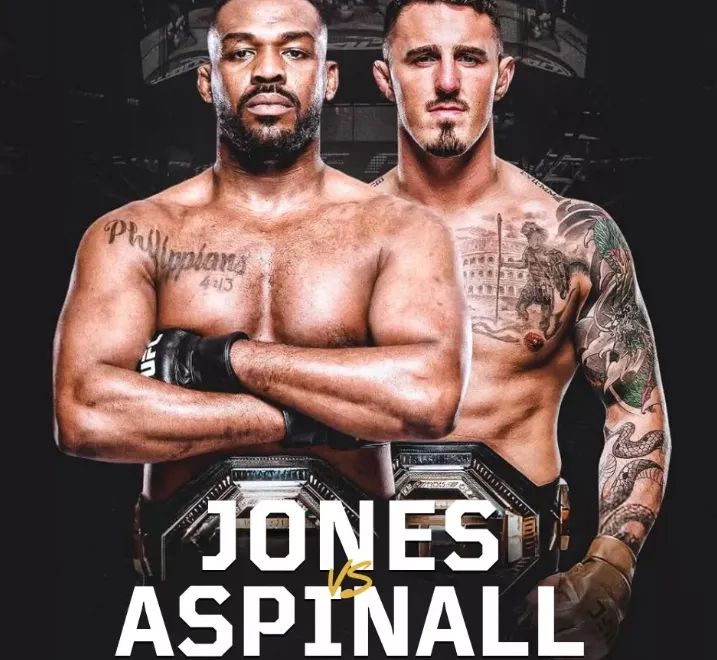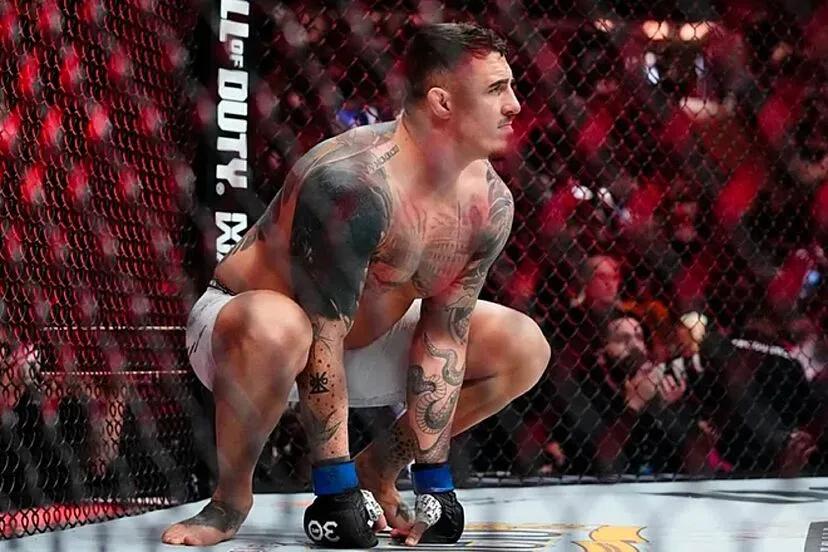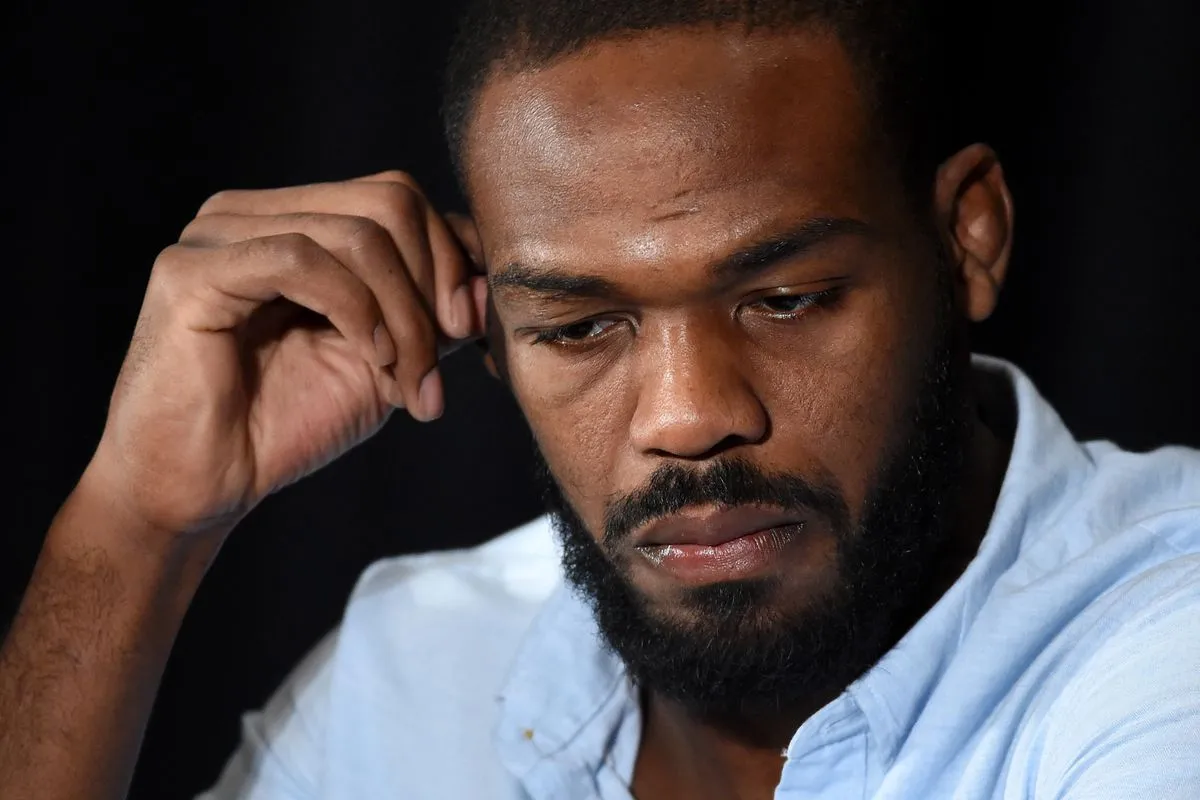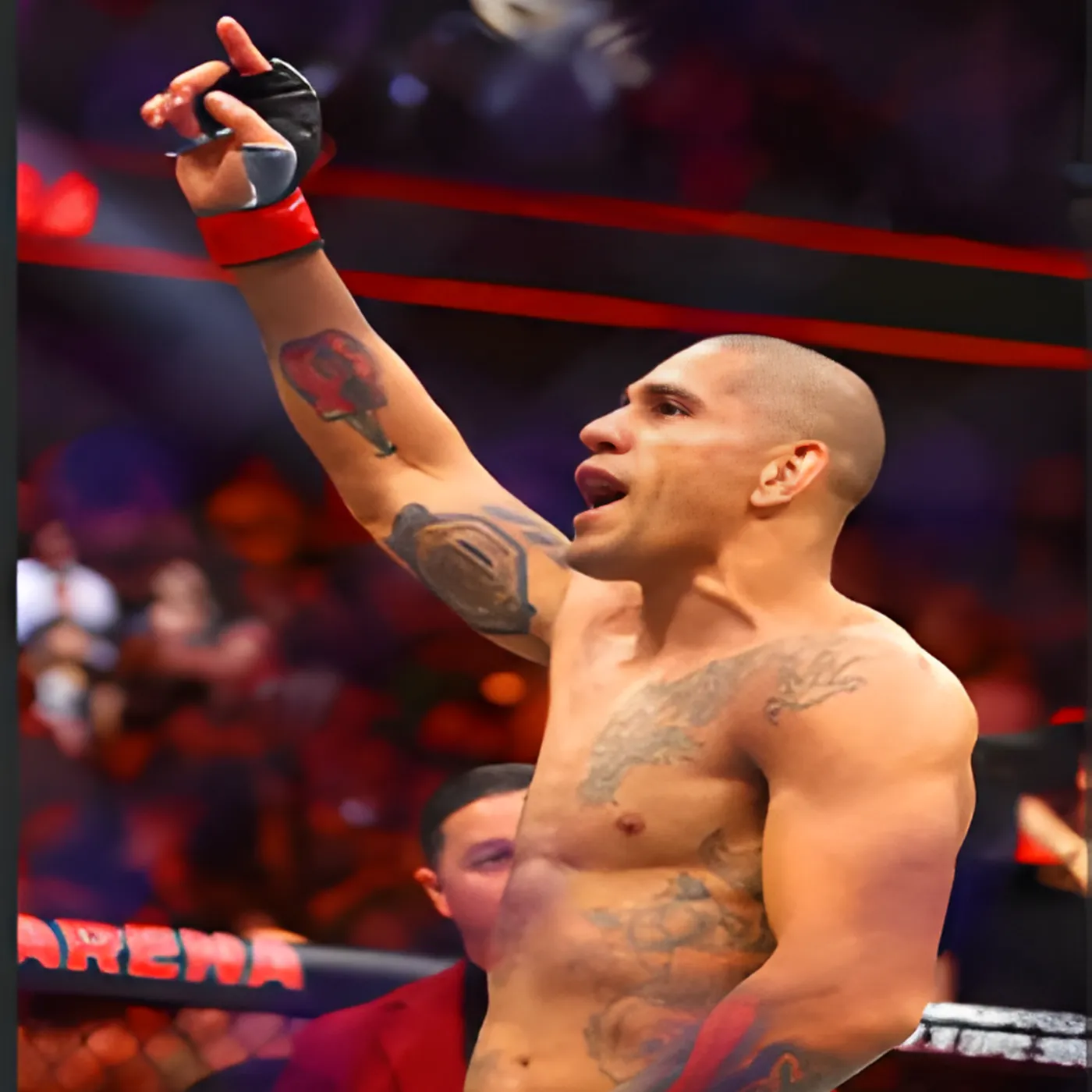

Aspinall Dives Straight into Jon Jones’ Doping Past after Failed Negotiations
Tensions are rising in the UFC’s heavyweight division, and the war of words between Tom Aspinall and Jon Jones has taken a sharp turn. After negotiations reportedly fell through for a potential super fight between the two, Aspinall didn’t hold back—diving straight into Jones’ controversial past, including his history with performance-enhancing drugs (PEDs). For fans and analysts alike, the latest comments reignite questions about Jon Jones’ legacy, the transparency of the UFC’s drug testing policies, and what truly caused negotiations between these two stars to fall apart.
The issue at hand is more than just trash talk. Aspinall’s criticism echoes long-standing skepticism surrounding Jones’ career and serves as a stark message: if the greatest of all time won’t step into the cage, then perhaps his past deserves closer scrutiny. But was this a strategic move from the British heavyweight, or just frustration boiling over from a stalled title opportunity?
Failed Super Fight Negotiations: Aspinall Left Waiting
For months, fans have clamored for a showdown between reigning interim champion Tom Aspinall and the lineal heavyweight champion Jon “Bones” Jones. The match-up had everything: the promise of generational talent versus established greatness, youthful aggression versus veteran experience, and the chance to unify the UFC heavyweight belt once and for all.

However, negotiations for the bout reportedly stalled earlier this year. According to insiders close to the UFC, the deal broke down due to several issues:
-
Jones’ recovery timeline after injury remained uncertain.
-
The UFC was hesitant to push Jones into a fight before he was medically cleared.
-
Jones allegedly requested a fight with Stipe Miocic instead—an aging former champion who hasn’t competed since 2021.
-
Aspinall demanded clarity on the heavyweight title situation, calling the delay “disrespectful.”
With no resolution in sight, the UFC leaned toward Jones vs. Miocic later in the year, sidelining Aspinall despite his recent interim title win. That’s when the tone shifted—and so did the narrative.
Aspinall Targets PED Scandals: “People Haven’t Forgotten”
Frustrated by what he called a “dodging pattern,” Tom Aspinall brought up Jon Jones’ history of failed drug tests during an interview on a British MMA podcast.
“Listen, I’ve respected Jones as a fighter, but people haven’t forgotten the stuff from before. You can’t disappear for months, avoid the top guys, and pretend like everything’s clean now,” Aspinall stated.
“If he’s the greatest, prove it. Come fight me—not another guy from 10 years ago.”
Jones’ career has indeed been marred by multiple drug testing controversies:
-
In 2016, Jones was pulled from UFC 200 just three days before his bout against Daniel Cormier due to banned substances found in his system.
-
He received a one-year suspension after testing positive for clomiphene and letrozole—two drugs commonly used after steroid cycles.
-
In 2017, he tested positive for Turinabol after his rematch with Cormier, a result that led to the fight being overturned to a no-contest.
-
While Jones has always maintained that he never knowingly cheated, these cases have severely damaged his credibility among both fans and fellow fighters.
Aspinall’s remarks were clear: if Jones wants to call himself the heavyweight king, he can’t escape questions about his past.
Jon Jones’ Doping Legacy: Tarnished Greatness or Misunderstood Legend?
When discussing Jon Jones’ PED history, the MMA community is divided. Supporters argue that USADA’s evolving testing thresholds and inconsistent policies contributed to the confusion around Jones’ results. Detractors, however, say there’s too much smoke to ignore the fire.
In 2018, Jones’ positive tests for trace amounts of Turinabol led to the now-infamous “pulsing” controversy, where trace amounts of banned substances supposedly lingered in his system for months, if not years. USADA eventually modified its stance, claiming the amounts were not performance-enhancing and likely residual from past ingestion.
Still, Jones’ image took a hit. Despite his undeniable talent, many fans have started to question how many of his victories were tainted by unfair advantages. Aspinall capitalized on this doubt by highlighting that a fighter’s reputation isn’t just about wins—it’s about how those wins are earned.
The Business Side: Why the UFC May Be Protecting Jones
Aspinall’s criticisms don’t stop with Jones. In another interview with Sky Sports, he pointed a finger at the UFC itself:
“It feels like they’re protecting him. If it was any other fighter ducking out or pulling this stuff, they’d be stripped or benched. But with Jones? Everything gets excused.”
This criticism taps into a broader debate about the UFC’s business priorities. Jon Jones remains one of the biggest draws in MMA, and the UFC has a vested interest in preserving marquee fights like Jones vs. Miocic—especially as PPV sales fluctuate.
By delaying or avoiding a bout with Aspinall, the UFC risks alienating a younger, hungrier fan base that’s looking for the next big thing. On the other hand, executives may see a Jones–Miocic bout as one last blockbuster before potentially ushering in a new heavyweight era. Aspinall, though, refuses to wait in the wings.
Aspinall’s Rise: Clean, Charismatic, and Hungry
Unlike Jones, Tom Aspinall has no doping allegations to his name. His rise through the UFC ranks has been defined by his athleticism, humility, and lethal finishing ability. With wins over top-tier heavyweights like Marcin Tybura and Sergei Pavlovich, Aspinall has proven he’s more than just hype.
By calling out Jones’ past, Aspinall positions himself as the anti-Jones—a clean fighter, chasing legacy the right way. This angle resonates with a growing demographic of fans who value transparency and fair competition.
Social media reaction to Aspinall’s comments has been overwhelmingly supportive:
-
“Tom’s speaking facts. Jones had years to clear his name. Time to fight or step aside.”
-
“No more dodging. If Jones is the champ, let him prove it in the cage.”
-
“I’m tired of legends being protected from real challengers. Aspinall earned his shot.”

What’s Next for the Heavyweight Division?
With negotiations stalled and Jones recovering from injury, the UFC faces a pivotal decision:
-
Will they strip Jones of the title if he remains inactive?
-
Could they book Aspinall against another top contender like Sergei Pavlovich or Curtis Blaydes for a second interim defense?
-
Or will Jones respond to the pressure and agree to fight Aspinall by year’s end?
Aspinall, for his part, has made it clear he’s ready.
“I’m not here to wait for people’s leg injuries to heal. I’ve got goals. If Jones won’t fight, someone else will.”
If the UFC wants to maintain credibility in the post-USADA era, booking a clean, hungry fighter like Aspinall against anyone—even Jon Jones—might be the only way forward.
Final Thoughts: Will Jon Jones Respond?
The UFC’s heavyweight landscape is at a boiling point, and Tom Aspinall is leading the charge. By calling out Jon Jones’ PED history, he’s not just trying to provoke a fight—he’s drawing a line in the sand. Either Jones returns and faces his critics in the cage, or he risks further damage to his legacy.
Will Jon Jones take the bait? Will the UFC finally put its interim champion on equal footing with the legend? And will Aspinall’s gambit pay off, or backfire?
One thing is certain: fans are watching closely, and they’re growing tired of games. The fight isn’t just in the Octagon anymore—it’s in the narrative. And for now, Aspinall owns that narrative.


















